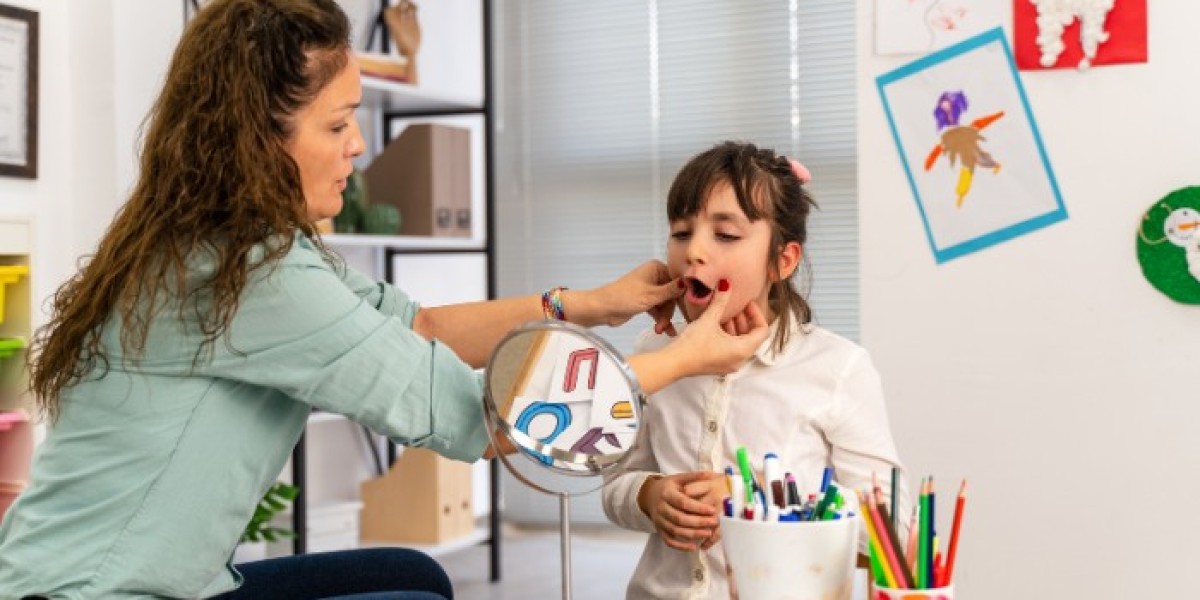A stroke is a sudden and often life-altering event that can impact various physical and cognitive functions, including speech and communication. Many stroke survivors struggle with difficulties such as aphasia (language impairment), dysarthria (slurred speech), and apraxia of speech (difficulty coordinating mouth movements for speech). These challenges can make it hard for them to express their thoughts, understand conversations, or even perform basic communication tasks.
This is where speech therapy plays a crucial role in stroke rehabilitation. A structured speech therapy program helps stroke survivors regain their ability to speak, understand language, and communicate effectively. It focuses on improving muscle control, cognitive functions, and alternative communication strategies, enabling them to lead an independent life.
For those undergoing post-stroke rehabilitation, combining speech therapy with occupational therapy in Paschim Vihar, Delhi NCR, can provide a comprehensive approach to recovery. Let’s explore how speech therapy aids in restoring communication skills for stroke survivors.
Understanding Post-Stroke Speech Challenges
The impact of a stroke on speech depends on the part of the brain that has been affected. Some common speech and language disorders experienced by stroke survivors include:
1. Aphasia
Aphasia occurs when a stroke affects the language centers of the brain, making it difficult to speak, understand language, read, or write. There are different types of aphasia:
Expressive Aphasia (Broca’s Aphasia): Difficulty forming sentences but retaining comprehension.
Receptive Aphasia (Wernicke’s Aphasia): Speaking fluently but struggling to understand language.
Global Aphasia: Severe impairment in both comprehension and expression.
2. Dysarthria
Dysarthria is caused by weakness in the muscles that control speech, leading to slurred, slow, or unclear speech. Although the survivor knows what they want to say, their words may be difficult to understand.
3. Apraxia of Speech
Apraxia of speech occurs when the brain has difficulty coordinating the mouth, lips, and tongue movements required for speech. The individual may know the word they want to say but struggle to physically produce the sounds.
These speech impairments can severely impact a stroke survivor’s ability to communicate, making everyday interactions challenging. Fortunately, speech therapy offers a structured path to recovery.
How Speech Therapy Helps Stroke Survivors Recover Communication
Speech therapy plays a critical role in helping stroke survivors regain their communication abilities. A licensed speech-language pathologist (SLP) designs a personalized treatment plan based on the severity of impairment and individual goals. Here’s how speech therapy aids in recovery:
1. Strengthening Oral Muscles
For stroke survivors struggling with dysarthria or muscle weakness, speech therapists use exercises to strengthen the lips, tongue, and jaw. Techniques include:
Facial muscle exercises to improve articulation.
Tongue-strengthening exercises for better pronunciation.
Breathing exercises to enhance voice control and clarity.
These targeted therapies help individuals speak more clearly and with better control over their vocal muscles.
2. Improving Language and Comprehension
For those with aphasia, rebuilding language skills is a crucial part of speech therapy. Therapists use:
Word-finding exercises to help recall words faster.
Sentence-building activities to enhance fluency.
Visual aids and flashcards to reinforce understanding.
By repeatedly practicing these techniques, stroke survivors gradually improve their ability to express thoughts and comprehend conversations.
3. Cognitive Communication Training
Speech therapy not only improves speech but also enhances cognitive functions such as:
Memory and recall (e.g., remembering words and phrases).
Attention and focus (e.g., staying engaged in conversations).
Problem-solving skills (e.g., structuring thoughts before speaking).
These exercises help patients communicate more effectively in real-life scenarios, improving their social interactions.
4. Non-Verbal Communication Strategies
When speech difficulties persist, therapists introduce alternative communication methods, such as:
Gestures and body language for basic communication.
Writing or typing to express thoughts.
Communication boards or speech-generating devices for assistance.
These methods empower stroke survivors to communicate despite speech limitations, boosting their confidence and independence.
5. Use of Technology in Speech Therapy
Modern speech therapy incorporates AI-powered speech apps, virtual exercises, and interactive tools to enhance communication. Some popular digital tools include:
Speech therapy apps like Tactus Therapy and Constant Therapy.
Video-assisted speech exercises to practice at home.
Teletherapy sessions for remote access to speech therapy.
Using technology allows patients to practice at their own pace and reinforce therapy sessions outside clinical settings.
The Role of Family in Speech Recovery
Family involvement is vital in a stroke survivor’s speech recovery journey. Caregivers and loved ones can support the rehabilitation process by:
Practicing speech exercises at home.
Encouraging slow and clear communication.
Being patient and allowing extra time for responses.
Using visual cues and gestures to aid understanding.
A positive, encouraging environment helps stroke survivors regain confidence in their communication abilities.
Why Early Speech Therapy is Essential
The earlier speech therapy begins after a stroke, the higher the chances of regaining communication skills. Studies show that early intervention significantly improves speech recovery outcomes. Regular sessions with a professional speech therapist can help stroke survivors:
Recover lost speech abilities faster.
Develop new communication strategies.
Prevent long-term speech impairments.
If you or a loved one is recovering from a stroke, seeking professional speech therapy services is the best step toward rehabilitation.
Finding the Best Speech Therapy Services in Paschim Vihar, Delhi NCR
Choosing the right speech therapist can make a significant difference in a stroke survivor’s recovery journey. Look for therapists with experience in post-stroke rehabilitation, aphasia therapy, and speech retraining techniques.
With guidance from the best speech therapists in Paschim Vihar, Delhi NCR, stroke survivors can improve their speech, regain confidence, and restore their ability to communicate effectively. Whether through in-person therapy sessions or digital speech programs, professional intervention can help stroke survivors rebuild their lives, one word at a time.
Final Thoughts
Speech therapy is a powerful tool in post-stroke recovery, offering hope and effective solutions to those struggling with communication challenges. Through structured therapy, speech exercises, and family support, stroke survivors can regain their speech, improve their quality of life, and communicate with confidence once again.
If you or a loved one is in need of expert speech therapy, don’t wait—start your recovery journey today with professional help.








